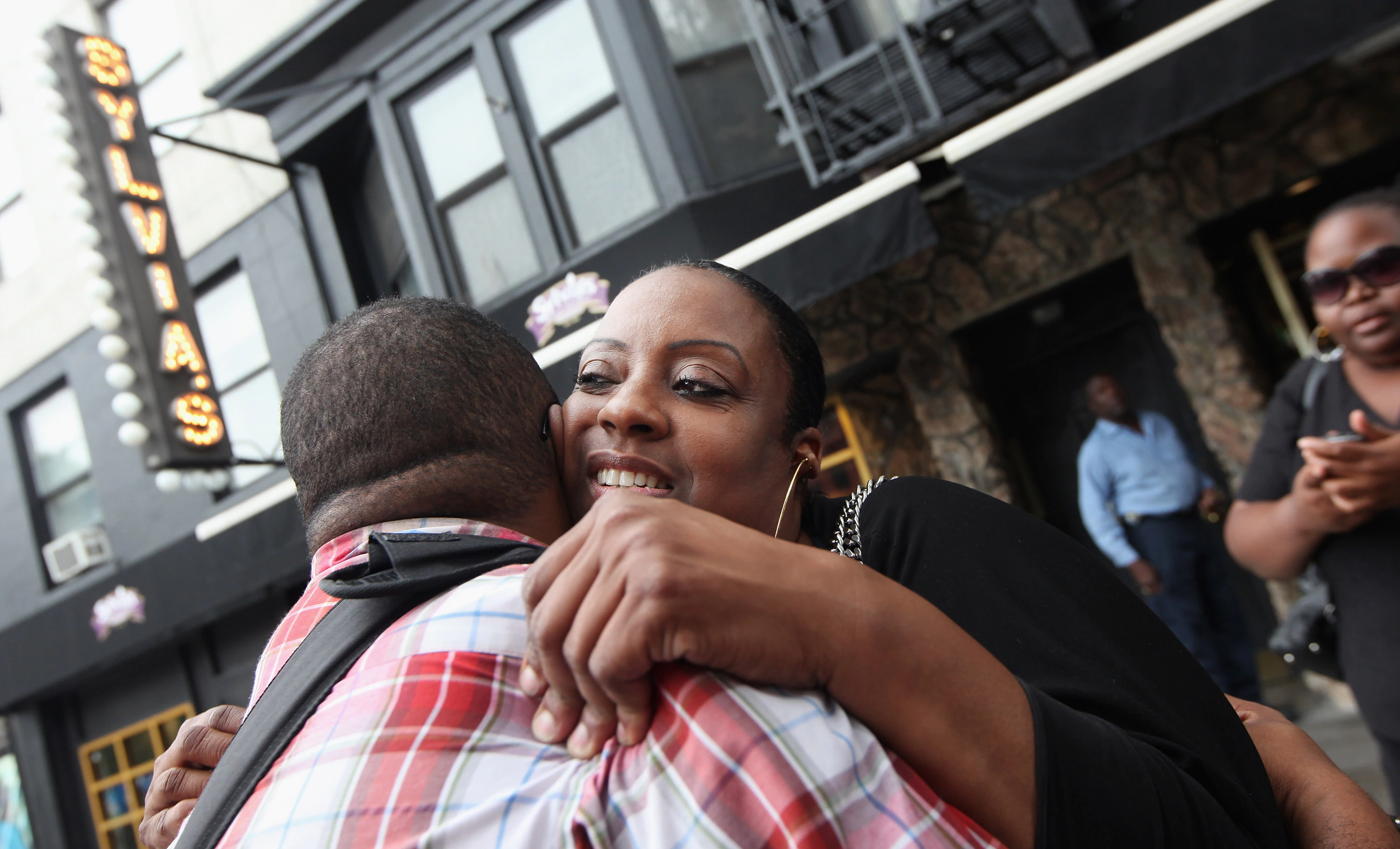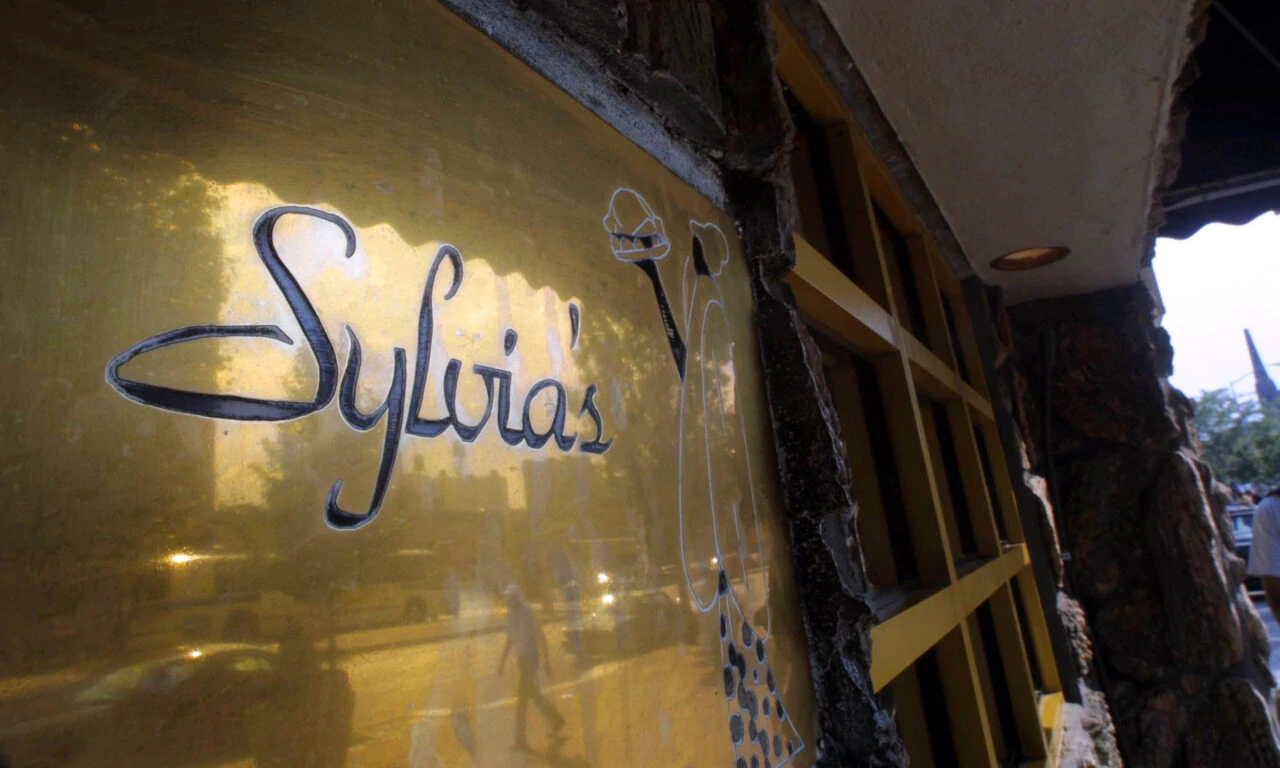[ad_1]
It is true. When America catches a cold, the Black community catches pneumonia … or the coronavirus. Amid the nation’s economic downturn, largely because of state-mandated quarantines, small Black businesses are suffering in epic proportions.
The neighborhood of Harlem, in particular, has been knocked to its knees, as shop after shop has struggled to keep its doors open during the current crisis.
READ MORE: Harlem church hit hard by coronavirus loses nine members within a month
Despite the support of the stimulus package and donations from the communities, Reuters reports that even some of the most respected businesses in Harlem have been impacted.
Sylvia’s soul food restaurant has been a staple in Harlem, touching seven different decades. Last year, the popular dinery had lines of people trying to get in for a hot meal. Now, it is quite different. The coronavirus pandemic has almost halted business. Poor revenues have forced the family-owned business to make the difficult decision to let go of most of its staff.
Tren’ness Woods-Black, granddaughter of the late Sylvia Woods and a third-generation heir of one of Harlem’s most recognized businesses, believes that there is light at the end of the tunnel, but notes that the tunnel seems to be too far for her to guess when.
Some businesses are shifting from brick and mortar and considering online services. Mark Parris shared how he is strategizing to make his business work, “If the local economy is shrinking, if I make myself available through e-commerce, hopefully, you know, I can survive.”
Other businesses won’t be able to pour everything into their digital space. Consider Karl Franz Wills, the owner of 67 Orange Street cocktail bar. COVID-19 stopped his business completely because his clientele is motivated by socializing. He argues, however, that there were many systemic challenges that he has experienced as a Black business owner.
He noted, “There are issues for Black and brown entrepreneurs that were there before. They are considered less bankable with equal credit scores and resumes, that is all part of the problem.”

Connie Evans, AEO’s president and chief executive, argues that the availability of capital to Black-owned businesses has actually gotten better since 2008.
“These local businesses in the community, just because they don’t have a strong balance sheet like a large corporation doesn’t mean they are high risk,” Evans said. “They are essential in the community.”
Reuters suggests that there is an uptick of corporate promise, stemming from the civil unrest provoked by the police-involved killings of George Floyd and Breonna Taylor, may actually support Evans’ position. The outlet reports that U.S. financial companies have already pledged funds as a reinvestment into and an act of alliance to the Black community.
Institutions like Bank of America Corp (BAC.N) are one example of a large company’s desire to reallocate money to people of color and their social interests and political needs. They have committed to giving $1 billion to some businesses and organizations to show their commitment to racial and economic inequality.
However, that may not be enough for Black business owners to jump for joy. Many don’t believe it will trickle down and have an impact.
Read More: Beyonce and NAACP partner to give grants to Black-owned small businesses
Tiffany Bowen owns Harlem Hookah on Malcolm X Boulevard and is one of those skeptics. Even as she secured a PPP loan in the second round of funding to help her with rent debt and honor the salaries of her employees, she still had to close her doors. For Bowen, this is all talk.
“I’ve heard these stories before, but yet we still have such poor numbers for Black businesses,” she explained.
Her doubt seeps through like air from a balloon, “When has the financial industry ever come through for people of color?”
Have you subscribed to theGrio’s new podcast “Dear Culture”? Download our newest episodes now!
[ad_2]
Source link


